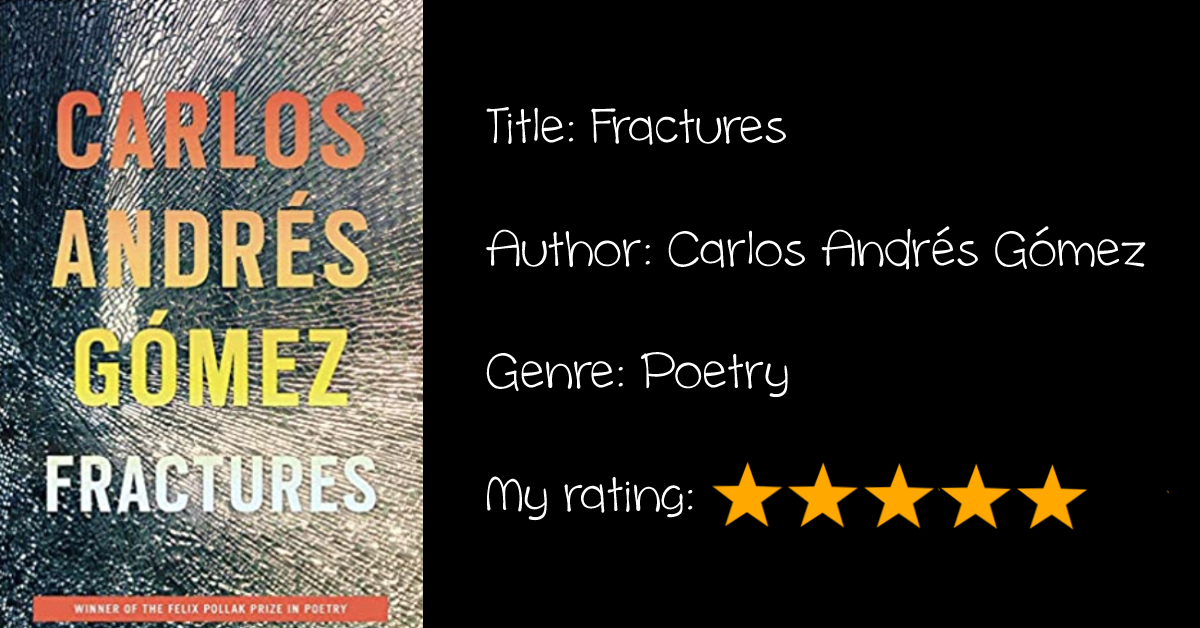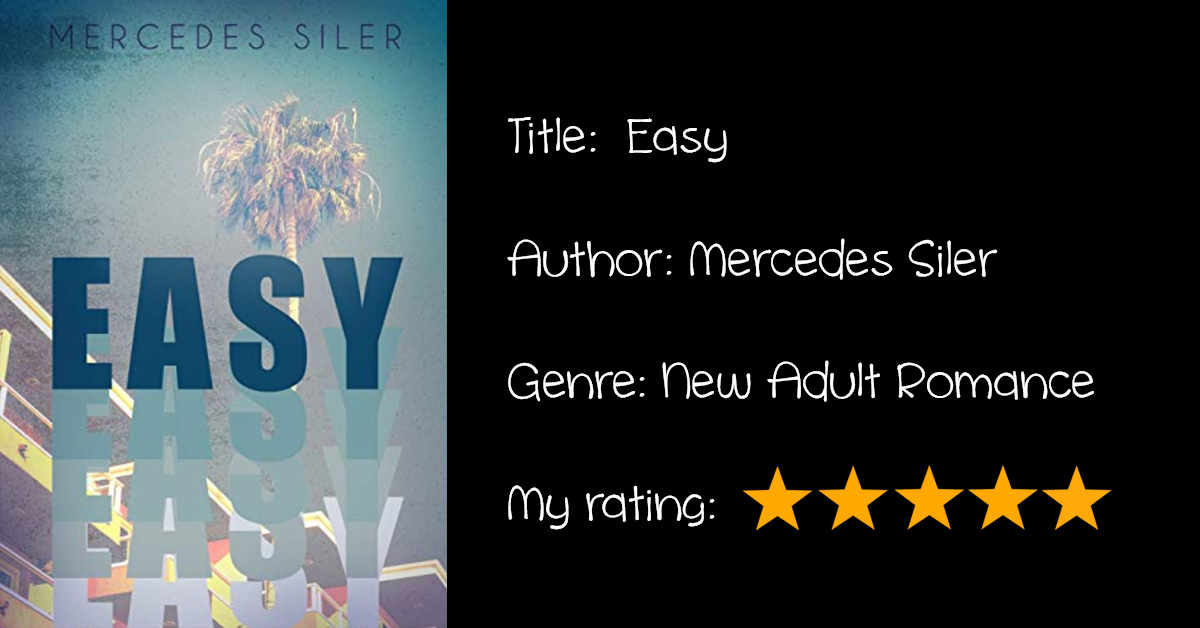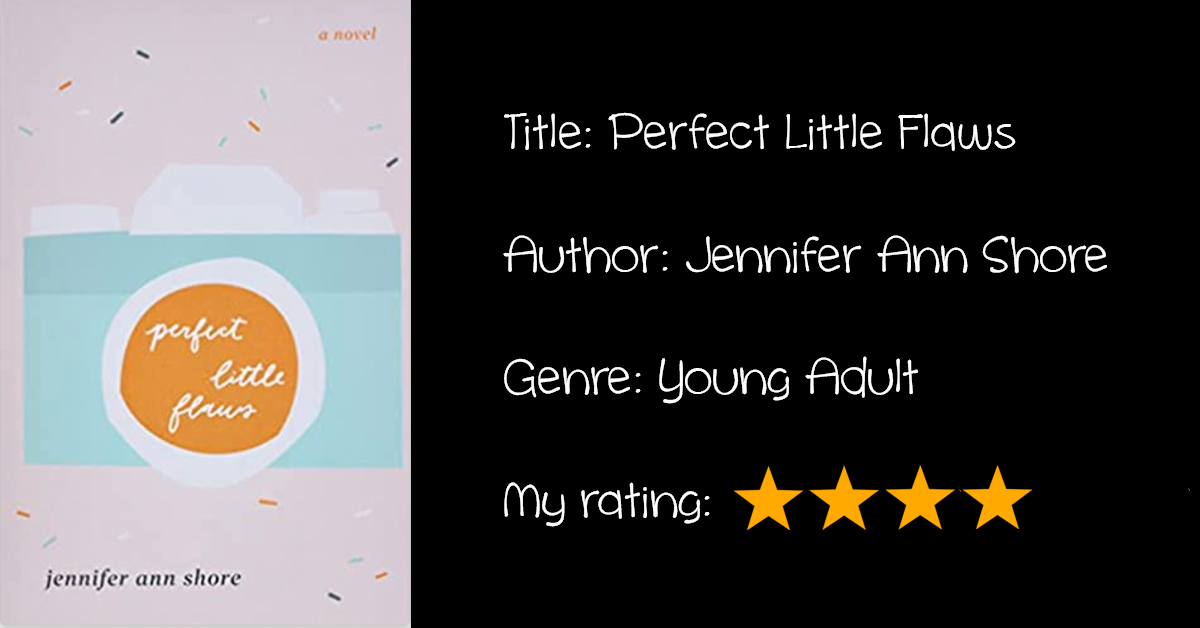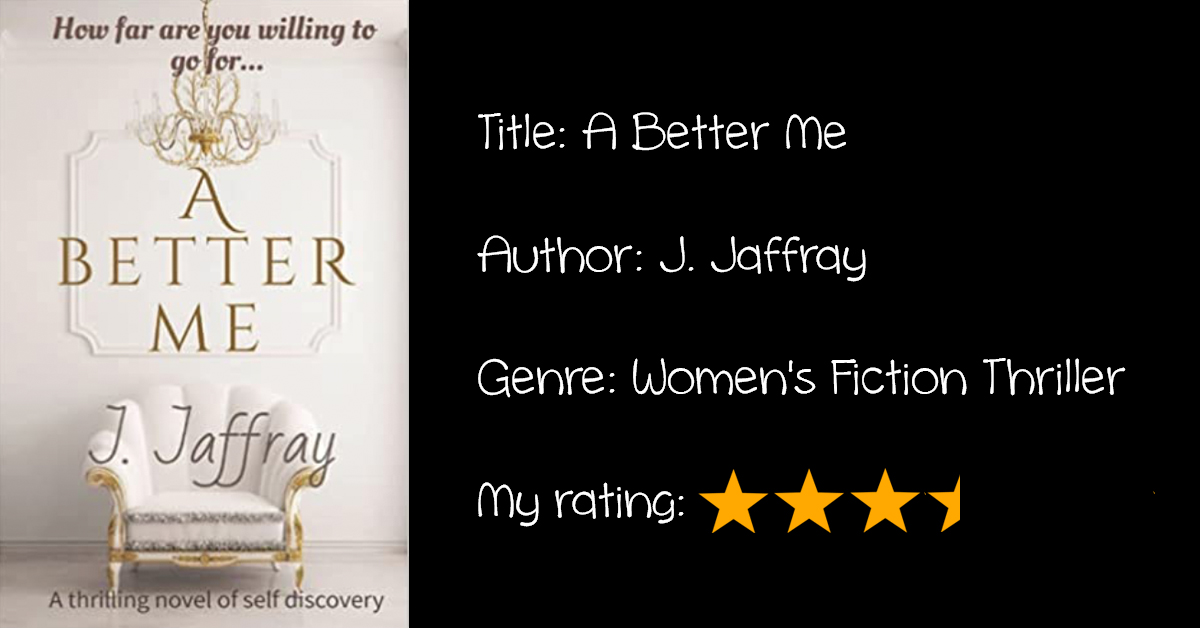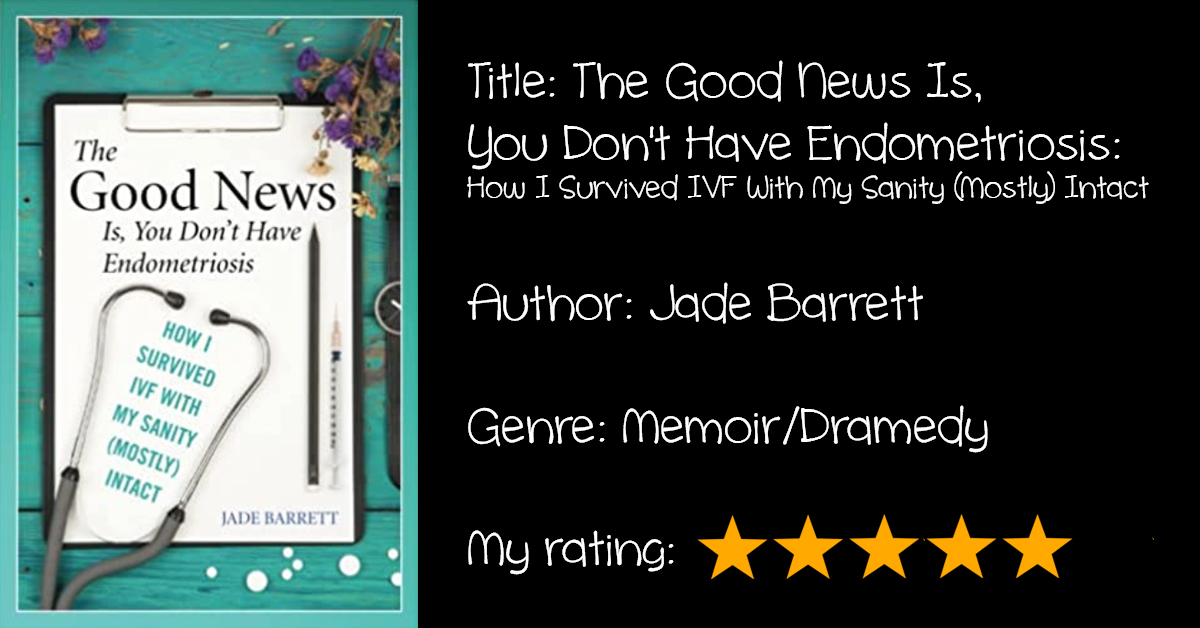Review: “Fractures”
I chose this from an ARC program because I enjoy poetry and have not reviewed a poetry book as yet for my blog.
The Premise
In his landmark debut, Carlos Andrés Gómez interrogates race, gender, sexuality, and violence to explore some of the most pressing issues of our time.
The Pros & Cons
This was a deep, moving, and unsettling collection of poetry that touches on some of the most urgent issues that permeate our society from the past, to the present, and into the future.
The opening piece reflects on the police shooting of Michael Brown Jr., and the sentiment that he cannot protect his family from potential harm in an unjust, racist world. This prelude is just a taste of what’s to come.
At the turn of each page emerges a story within each piece, couched in the framework of a few lines of poetry or prose. One of my favourites was a reflection on race that rings true for many of us, on the tether of parenthood that pulls us back from losing control and retaliating when confronted with racism:
I have watched my body’s primal wisdom flicker dark as a fist-concealed palm, ache so volatile it screams mute. Rage is a language I unlearn […]
–“INTERRACIAL IN FLATBUSH, BROOKLYN”
Another that stayed with me, hauntingly, was human resilience amidst the dark history of segregation that lives alongside us to this day:
[…] the cashier refused to offer her a word, instead pointed to the White Only sign and motioned toward a dung-filled field where she was forced to squat as a busload of tourists watched her slide her drawers to her ankles, trembling to keep her balance, trying to spare her church shoes and her grace.There is a child, four generations from now, who will remember […] a woman he’s never met alive on the wall of his grandmother’s foyer: bloodshot eyes that refuse to look away.
–“UNDERGROUND”
Along with the overarching theme of racism, there are others: homosexuality, masculinity, fatherhood, birth, death, an immigrant’s struggle, and much more.
The overall sense of the body of work is fragments of a whole — a window into the many constructs that make up a man. From practicing to do hair (to get it right though his own father couldn’t with his sister) in preparation for his daughter’s arrival (“I can feel, with each pull and twist, the newly assembled crib watching”); to a father’s fervent prayer every time his Black son is away from home that he returns safely (“I will have nothing to offer the stoic night but clasped hands. And then, I will wait. I will sit beside the front door and wait”); to an immigrant’s duality of existence slipping between contrasting worlds (“You hardly remember your mother tongue. You are trying to pull something useable from the wreckage”), we feel his powerlessness battling with his strength to overcome life’s hurdles and setbacks as he becomes a man, a parent, a person with something worthy to say.
Conclusion
From beginning to end, this collection of poetry leaps off the page to assault all the senses, transporting us into the mind and lived experience of a fragmented, fractured man that represents pieces of us all. He also references contemporary events and other authors, placing his own work into specific contexts for interpretation. As with any amalgamation of poetry, there are many pieces that aren’t entirely straightforward as they may be personal to the author or written in an elusive way; yet the sentiment is there: we feel the meaning, even if we don’t understand every word. This is the kind of work that students of literature can pull apart to analyze, and everyone can find a different kernel of wisdom or poignant phrase to admire. I thoroughly enjoyed this book, and highly recommend it to others.
